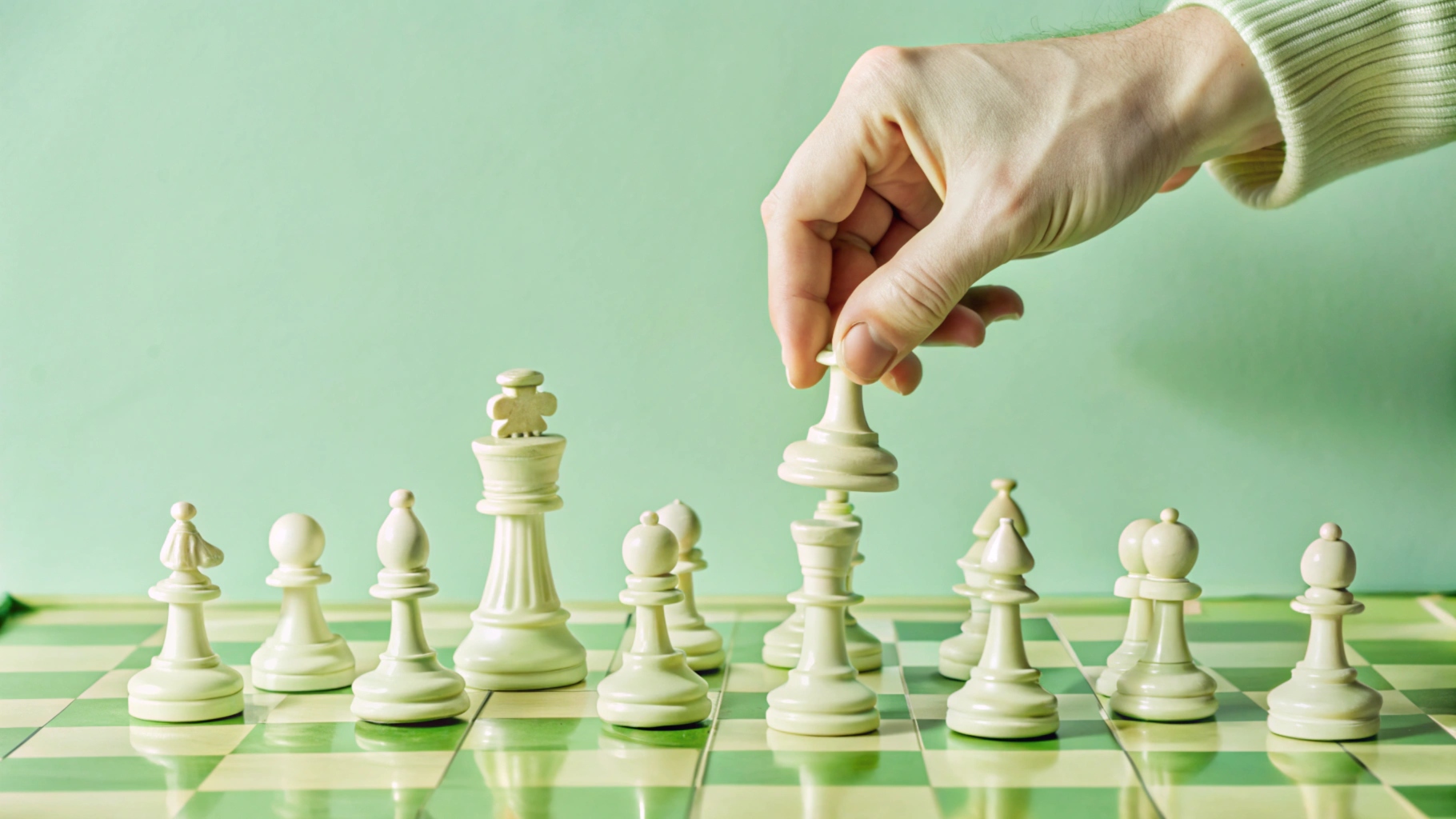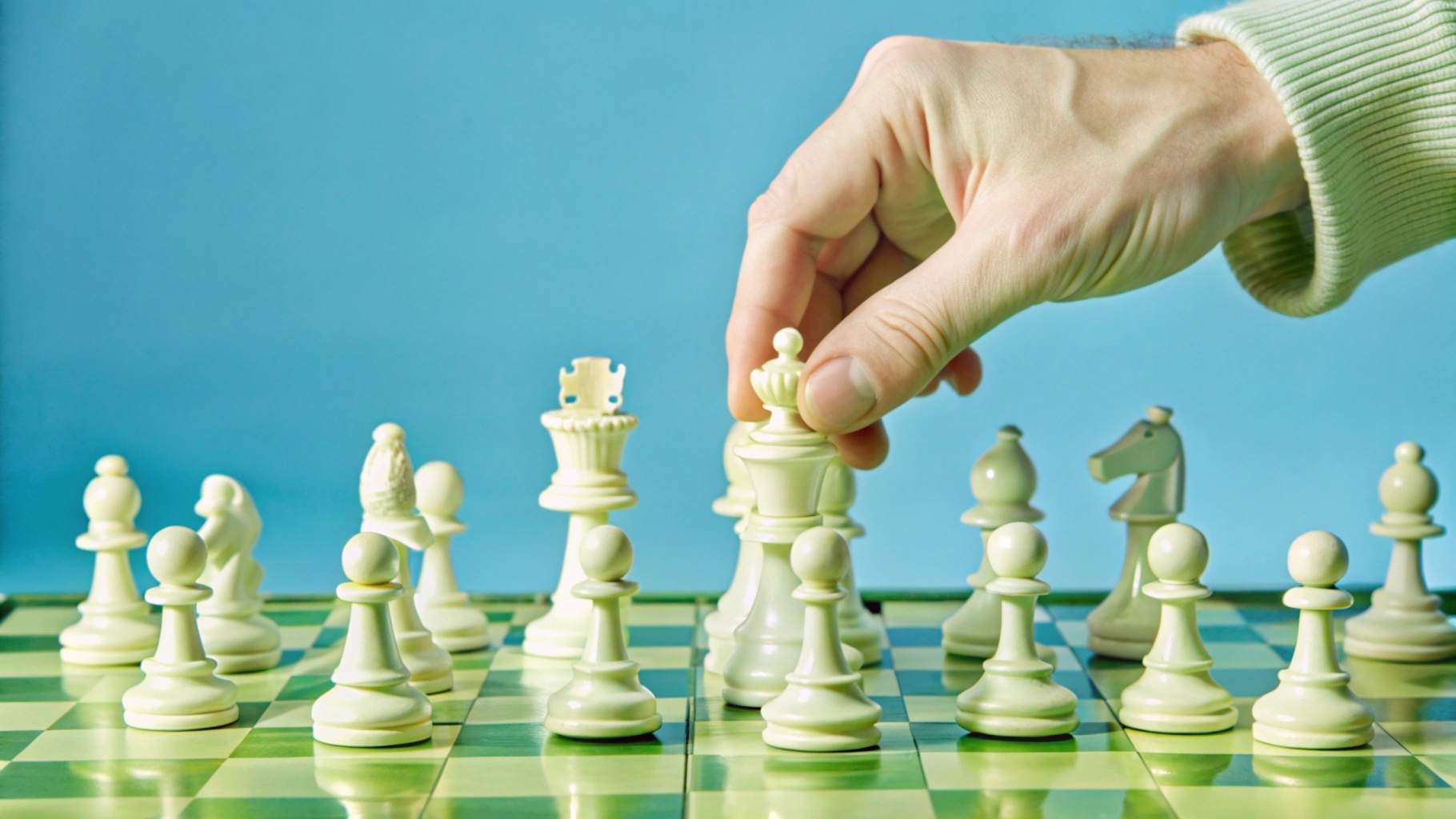Powerful Link Between Chess and Stress: Why Chess Players Experience Less Fatigue and Anxiety
Chess and stress are more closely connected than many might think. The unique mental and emotional demands of chess help explain why chess players experience less fatigue and anxiety compared to others.
Unlike activities that have a tendency to create physical tension or mental fatigue, chess invites concentrated effort, patience, and foresight—traits that are well established to reduce the body‘s stress response. Scientific studies show that the impact of chess extends far beyond intellectual growth.
The majority of regular players report increased mental endurance and emotional control, both of which are essential to preventing stress-induced burnout. Through the development of mental endurance and emotional strength, chess is a natural antidote to the physical and psychological burnout that frequently arises in daily life. This is why chess players experience less fatigue and anxiety, using the game as both a discipline and a relief mechanism.
1. Mental Endurance and Physical Fatigue: The Mind-Body Connection
Sustained Focus and Cognitive Stamina
Chess is a sport that must be played with strong mental focus over long periods. Such focus creates mental endurance with practice, and this positively influences physical endurance as well. Training the mind to remain alert and focused also enables players to endure physical fatigue in daily life.
Resilience Through Mental Discipline
Continual chess playing also instills mental discipline to allow one to suppress emotional responses and keep stress levels in check. This ability to remain calm in pressure situations reduces the release of stress hormones like cortisol, hence increasing physical and mental resilience.
How Mental Training Reduces Physical Strain
2. Emotional Resilience: How Chess Builds Resistance to Stress
Composure Under Pressure
Chess players are constantly faced with high-risk decisions and unexpected setbacks. Resilience in the midst of such adversity builds emotional control and sharpens strategic thinking—skills that allow one to manage real-life stress better.
Embracing Failure as Growth
The very nature of chess is winning and losing, often alternating in quick turnover. This beat habituates individuals to cope with disappointment, reflect on mistakes, and proceed with greater emotional maturity. Over time, this process builds lasting resilience and equanimity in stressful situations.
3. Positive Effects of Chess on the Nervous System
Mental Clarity and Emotional Balance
The intense but controlled mental concentration encouraged by chess stabilizes the nervous system. Unlike stimulating activities, chess invites subdued, introspective thought that enhances neurological health and relieves symptoms of tension such as headaches, irritability, and fatigue.
Cognitive Activation and Reduced Mental Tiredness
Chess stimulates several areas of the brain that are involved in memory, problem-solving, and planning. This type of mental activity prevents mental fatigue, which tends to over-extend to physical fatigue, leading to levels of energy lasting all day.
4. The Role of Routine and Discipline in Preventing Fatigue
Creating Healthy Habits Through Chess
Playing chess regularly normally stimulates a well-organized day-to-day timetable, which has been known to lead to healthier sleeping patterns, better time organization, and reduced stress. Such timetables are known to ensure the body remains protected from energy crashes and burnout.
Self-Control as a Buffer Against Burnout
5. Social Connections and Stress Relief in Chess Communities
The Power of Meaningful Social Interaction
Whether on the internet, in clubs, or at amiable neighborhood tournaments, chess tends to unite people. Such social relationships are a natural stress reducer, forming emotional support systems that increase one’s ability to endure physical and mental stresses.
Shared Passion and Support Systems
6. Physical Benefits of Staying Stationary with High Concentration
Intentional Stillness and Physical Relaxation
Although chess is a sedentary activity, it is an active rather than passive sitting, and one that is conducive to conscious engagement. That matters—players will generally take a relaxed but alert stance that permits tension release, unlike passive screen habits, where one settles for slumped positions.
Breathing Patterns and Postural Awareness
7. Mindfulness and Relaxation: Natural Stress Reduction Techniques from Chess
Chess as a Form of Mental Centering
Chess engages strong focus on the here and now, drawing players into the “now” with every move. This watchful awareness is akin to many relaxation techniques used in stress reduction and can even soothe the nervous system easily.
A Productive Escape from Daily Worries

Chess and Stress Reduction Techniques: Applying Chess Principles in Everyday Life
The techniques that guide chess players through complex positions on the board can be applied to coping with stress and anxiety in daily life. By drawing on the strategic thinking developed through chess, individuals can increase their ability to stay calm, focused, and resilient in the midst of adversity. This is how the connection between chess and stress becomes a useful tool for emotional well-being:
a. Strategic Thinking for Stress Management
In chess, each move is the product of careful planning—not a hasty response. To apply the same thinking in life promotes a calmer method of dealing with everyday stress. When faced with a problem, step back and view the situation from a different angle. Divide it into steps, similar to planning a series of moves in a game. This eliminates emotional overwhelm and turns stress into a puzzle that can be solved.
b. Patience and Emotional Control
Chess teaches restraint. Wait for the right time, often while under pressure, without losing focus. In conditions of high pressure, this ability to stay calm is extremely valuable. Instead of reacting violently without thinking, wait and reflect first. Patience in decision-making leads to better emotional control and reduces unnecessary tension.
c. Mindfulness and Focused Awareness
Winning at chess depends on staying present—completely focused on the position in front of you. The same is true for stress management. As stress builds, ground yourself in the present moment with techniques like conscious breathing, short walks, or simple meditation. Focusing attention on the “now” improves clarity and permits less anxious thinking, just as re-focusing in a tense endgame.
d. Learning from Mistakes Without Judgment
e. Creating a Personal Stress-Relief Routine Inspired by Chess
In today’s fast-paced world, finding effective ways to combat fatigue and stress is more important than ever. That’s where the connection between chess and stress truly shines. By engaging in this mentally stimulating game, players cultivate emotional control, sharp focus, and mental endurance—all of which protect against the toll of daily pressure.
Why chess players experience less fatigue and anxiety isn’t a mystery—it’s a reflection of the powerful, mind-body benefits chess provides. From reducing cortisol levels to promoting mindfulness and building resilience, chess offers a natural path toward both mental clarity and physical well-being.
Incorporating chess into your lifestyle isn’t just a hobby—it’s a strategy for long-term health. By embracing the game, you’re not only sharpening your thinking but also creating a stronger, calmer, and more balanced version of yourself. The connection between chess and stress is more than psychological—it’s a pathway to physical stability and emotional health.




0 Comments